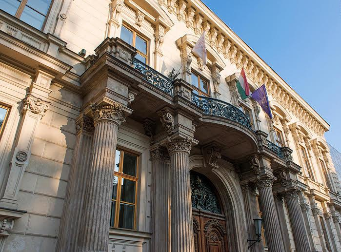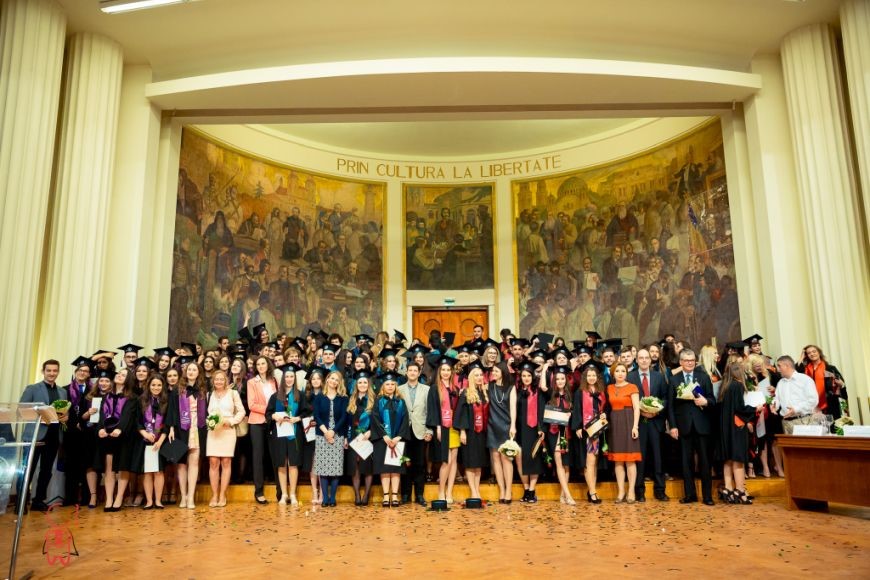Liberal democracy has been seriously questioned and challenged in Europe. To act against democratic backsliding in Hungary and other EU member states, EU institutions initially relied mainly on EU infringement procedures. The EU has complemented these instruments with a rule of law conditionality mechanism and developed procedures on how to suspend membership rights (Article 7, Treaty on the EU). The Council of Europe and its Venice Commission have elaborated an extremely valuable series of documents defining key principles and institutions of liberal democracy. However, these elements have not yet evolved into a coherent constitutional blueprint for a liberal democracy, not least because national institutional arrangements differ significantly.
Tag: European Integration
Demokratie im postkommunistischen EU-Raum. Erfolge, Defizite, Risiken
Springer Verlag für Sozialwissenschaften, Wiesbaden 2021 (Mitherausgeber: Günter Verheugen und Karel Vodička)
Wie resilient ist die Demokratie in Osteuropa? Mehrere Regierungen demontierten rechtsstaatliche Kontrollen und beschränkten die Meinungsvielfalt. Beflügelt von den Krisen der Europäischen Union, mobilisieren Populisten und Extremisten Unzufriedene. Korruptionsaffären und dubiose ökonomische Interessen scheinen die Politik zu beherrschen. Dieses Buch untersucht, inwieweit Akteurskonstellationen und gesellschaftliche Bedingungen illiberale Politiken in den postkommunistischen EU-Staaten begünstigen. Renommierte Länderexpert*innen analysieren Defizite, Erfolge und Risiken der demokratischen Entwicklung in den postkommunistischen EU-Mitgliedstaaten und in Ostdeutschland. Sie liefern ein systematisch vergleichendes und nuanciertes Gesamtbild – eine Generation nach den demokratischen Umbrüchen und im Blick auf Europas neue Gegensätze.
Potentials and Constraints of a Visegrád Cooperation
Published in “The New European Union and its Global Strategy: From Brexit to PESCO”, ed. by. V. Naumescu, Newcastle 2019, 258-275.
At the European Council of 28 June 2018, the Visegrád states successfully convinced the other European Union member states to refrain from a mandatory relocation of persons in need of international protection. The EU agreed to organize the relocation and resettlement of refugees and other recognized asylum seekers on a voluntary basis. This decision implied the abandoning of plans to reintroduce a mandatory relocation scheme similar to the temporary mechanism that had been adopted against the votes of the East-Central European EU member states in September 2015.
Herausforderungen der Europäischen Union
Internationales Doktorandenkolloquium der Andrássy Universität Budapest, Babeș-Bolyai Universität Cluj-Napoca und der Universität Passau, 13.-15.9.2018, Budapest

Die Rechtsstaatsprobleme in Ungarn und Polen sowie die Interventionsmöglichkeiten der EU waren ein zentrales Thema des internationalen Doktorandenkolloquiums am 13.-15.9.2018 in Budapest. Diese von den Europastudiengängen der Babeș-Bolyai, der Budapester Andrássy und Passauer Universität gemeinsam veranstaltete Tagung diente dazu, geplante, laufende und vor kurzem abgeschlossene Dissertationsprojekte vorzustellen und zu diskutieren.
Graduates and their Research Topics

The following abstracts show the range of topics students have investigated under my supervision.
Die Beitrittsverhandlungen zwischen der Europäischen Union und den Balkanstaaten
Die vorliegende Arbeit untersucht, wie die EU auf dem Hintergrund früherer Erweiterungen mit Serbien über den Beitritt verhandelt und inwieweit die Beitrittsverhandlungen zu innerstaatlichen Reformen in verschiedenen Politikbereichen (Justiz, Wirtschaft, Grundrechtsschutz, Medien, Verwaltung, Migration) beitragen. Die von der EU formulierten Erwartungen und die nationalen Umsetzungsmaßnahmen werden im Detail für die Schlüsselkapitel 23 (Judikative und Grundrechte) und 24 (Justiz, Freiheit und Sicherheit) in den Beitrittsverhandlungen erörtert. Insgesamt stellt der Autor fest, dass die EU einerseits durch eine besser an die Probleme der Balkanstaaten angepasste Verhandlungsstrategie die Region stabilisiert und zu ihrer politisch-ökonomischen Modernisierung beigetragen hat, andererseits jedoch nicht die wachsenden Spannungen zwischen Serbien und Kosovo sowie die Beeinträchtigungen der Medienfreiheit in Serbien verhindern konnte.
Die EU-Beitrittsperspektive für die Türkei
Diese Arbeit analysiert den in der EU stattfindenden politischen Diskurs zum EU-Beitritt der Türkei. Nach einem kurzen Überblick zur Entwicklung der EU/EG-Türkei-Beziehungen seit 1949 skizziert die Autorin zunächst die Positionen ausgewählter EU-Mitgliedstaaten zu einem Türkei-Beitritt und unterscheidet dabei geostrategische, sicherheitspolitische, integrations- und demokratiebezogene, ökonomische und kulturelle Argumente. Dann analysiert sie die von den verschiedenen Fraktionen im Europäischen Parlament in drei zentralen Debatten (2004, 2007 und 2012) vertretenen Standpunkte. Auf dieser Basis kann sie dominante Argumentationsmuster der politischen Akteure identifizieren und zeigen, dass sich der Schwerpunkt der Türkei-Debatte im betrachteten Zeitraum von kulturell-identitätsbezogenen zu demokratie- und sicherheitspolitischen Argumenten verlagert hat.
The European Union and the Post-2009 Crisis of Moldova
This thesis describes the political development and crisis of Moldova since 2009 against the backdrop of the Eastern Partnership policy initiated by the EU. A particular focus is placed on the public political discourse and the situation of the media in Moldova. A key finding of the thesis is that Moldova does not constitute a failed state, but may be characterized as a “captive state” that is stuck between two paths of development: closer integration with the EU versus accession to the Eurasian Economic Union established by Belarus, Kazakhstan and Russia in 2015. Due to its significant deficits of democracy and the rule of law, Moldova does not fulfill the EU’s political condition for becoming an EU member state.
Die Implementation grenzüberschreitender Projekte zwischen Rumänien und der Ukraine
Die Arbeit beschreibt ein vom Kreismuseum Satu Mare gemeinsam mit der Staatlichen Universität Transkarpatien Ujhorod 2011-12 realisiertes Projekt zur Erforschung und Erhaltung des grenzüberschreitenden Kulturerbes. Dieses Projekt wurde als Fallstudie für den Zustand und die Entwicklung der rumänisch-ukrainischen Beziehungen ausgewählt. Außerdem wird ein Überblick zur Kohäsionspolitik der EU und zum European Neighbourhood and Partnership Instrument gegeben, das die EU eingerichtet hat, um unter anderem die Länder der Östlichen Partnerschaft finanziell zu unterstützen.
Die sicherheitspolitische Dimension des Transnistrien-Konfliktes
Die vorliegende Arbeit fragt, inwieweit die existierenden Institutionen und Politiken zur Regelung des Transnistrien-Konfliktes die von diesem Konflikt ausgehenden drei zentralen Sicherheitsrisiken für Moldova, die Region und die EU wirksam einschränken. Diese Risiken bestehen in einer erneuten militärischen Eskalation, unterschiedlichen Formen grenzüberschreitender organisierter Kriminalität (Schmuggel, Menschenhandel) sowie in einer „state capture“ durch einflussreiche ökonomisch-politische Akteure („Oligarchen“). Zur Verringerung dieser Risiken wurden unter anderem bereits unmittelbar nach dem bewaffneten Konflikt 1992 eine Gemeinsame Kontrollkommission und 2005 die EU Border Assistance Mission to Moldova and Ukraine gegründet. Die EU hat Transnistrien in das 2014 mit Moldova unterzeichnete Assoziierungsabkommen einbezogen. Die Arbeit zeigt jedoch, dass die existierenden Präventionsansätze keinen dauerhaften Schutz gegen die Sicherheitsrisiken bieten und daher durch ein stärkeres Engagement der EU in der Konfliktbeilegung ergänzt werden sollten.
Poland’s Policy Towards the European Union
The present thesis studies how political elites in Poland have discussed about Poland’s position and policy towards the European Union. These debates provide an important background to the ongoing conflict between the EU and the Polish government over the rule of law. The emergence, positions and constellations of political parties in Poland are analyzed as well as the relevance of the Catholic tradition in Poland. The populist rhetoric used by some politicians in Poland tends to resonate with, and to reinforce popular mistrust vis-à-vis the EU. An in-depth analysis of interview statements made by the president of the governing party Prawo i Sprawiedliwość shows how the government seeks to strengthen its negotiating position through rhetorical opposition to the EU, while aiming to preserve a dialogue with the Union.
Die Nebenwirkungen des Neoliberalismus für Rumänien
Die Arbeit studiert die Auswirkungen des „Neoliberalismus“ und der mit ihm verbundenen multinationalen Unternehmen auf die Wirtschaft und Arbeitswelt in Rumänien. Dabei werden anhand einer eigens erstellten Umfrage und einer Fallstudie sowohl die Arbeitsbedingungen in multinationalen Unternehmen betrachtet, als auch die makroökonomischen und –sozialen Prozesse, denen Rumänien infolge der Globalisierung und transnationalen ökonomischen Integration ausgesetzt ist. Ein zentraler Befund der Arbeit ist, dass die Integration in das globale Wirtschaftssystem einerseits die Unterschiede zwischen Rumänien und dem Westen verringerte, andererseits sozioökonomische, regionale, sektorale und inter-generationale Disparitäten innerhalb Rumäniens vergrößerte und einige Entwicklungsdefizite in Rumänien aufgrund der Zerstörung bestehender Wirtschaftsstrukturen vertiefte.
The Role of Military Cooperation in International Security, the Nexus of the INF Treaty and the Anti-Ballistic Missile Shield
Eastern Partnership Index 2018 Update
 In the methodology suggested by me, “integration” is conceived as a core and multi-dimensional concept that consists of converging norms, growing economic exchange, deeper transnational networks linking up societies, and more frequent contacts between people. This broad notion of integration implies that EU membership or association may be aims, stages or final states of the integration process. However, it is not limited to a measure of harmonisation with EU norms and standards, but also reflects actual societal, economic and political change. The levels of contractual relations between the Eastern Partnership states and the EU are viewed as elements of a much broader process that is, as a whole, not driven or controlled solely by governments and intergovernmental negotiations.
In the methodology suggested by me, “integration” is conceived as a core and multi-dimensional concept that consists of converging norms, growing economic exchange, deeper transnational networks linking up societies, and more frequent contacts between people. This broad notion of integration implies that EU membership or association may be aims, stages or final states of the integration process. However, it is not limited to a measure of harmonisation with EU norms and standards, but also reflects actual societal, economic and political change. The levels of contractual relations between the Eastern Partnership states and the EU are viewed as elements of a much broader process that is, as a whole, not driven or controlled solely by governments and intergovernmental negotiations.
Rather, European integration is seen as a non-hierarchical, networked process where citizens, civic associations and business organisations play important roles. The interplay of these actors has been crucial for the historical development of the EU itself, as it induced and supported national political elites to take legal and institutional steps towards closer integration. Drawing on this experience, the Index is built on the premise that the ties between societies, peoples and economies form dimensions of European integration that are at least as important as the policy agendas of national governments and European Commission officials.
It is further assumed that transnational linkages contribute to the emergence and spread of common European and international norms which, in turn, facilitate closer linkages with the EU. For example, increasing trade is likely to strengthen domestic companies that benefit from foreign investment and are likely to become interested in courts that protect investors’ rights. A judicial system based on fair procedures and professionalism will then contribute to attracting more foreign investors.
An analogous reinforcing dynamic derives from a commitment to international norms and universal values. By incorporating democratic values, the protection of human rights and the rule of law in their constitutions, EaP states have adopted universal norms that have formed the basis of co-operation and integration among West European states since the end of the Second World War. The more these norms are implemented and respected in EaP states, the more co-operation with the EU will ensue because these states and the EU will increasingly recognise each other as partners sharing common norms and underlying values.
Download the report:EaP_Index_2016
Download the dataset
Bachelor Graduation Ceremony at Cluj University

On 27 May 2017, the Faculty of European Studies at Babes-Bolyai University Cluj held its annual Bachelor graduation ceremony. Professionally prepared by our students, the event turned out to be both solemn and lighthearted – a balance rarely achieved in German academic culture.
I was very delighted to award our students with their graduation diploma, recognizing three years of tough work and intellectual exchange in our German-language European Studies program.
Herausforderungen der Trump-Administration für die EU
Die Wahl des neuen amerikanischen Präsidenten bedeutet eine Zäsur für die Europäische Union, weil Donald Trump im Wahlkampf und vor seiner Amtseinführung die Fundamente der transatlantischen Kooperation in Frage gestellt hat. In seiner Kampagne gegen das Washingtoner Establishment erklärte Trump die NATO für obsolet und die EU für gescheitert, unterstützte EU-Gegner und begrüßte das britische Austrittsreferendum, lehnte das transatlantische Freihandelsabkommen TTIP ab und kündigte einen Ausstieg aus dem Pariser Klimaschutzabkkommen an.
Diese Aussagen reflektieren eine grundlegende Skepsis und Indifferenz gegenüber der westlichen Wertegemeinschaft und der darauf basierenden multilateralen, normgeleiteten internationalen Ordnung. Mit seinem Populismus stärkt der US-Präsident populistische Akteure und Anti-Establishment-Kräfte innerhalb der EU. Indem er die EU als “basically a vehicle for Germany” charakterisierte, bestätigte er europakritische Akteure in ihrer diskursiven Strategie, die EU als Camouflage deutscher Hegemonie zu entlarven.
Zugleich veranlasste die US-Politik jedoch die EU-Mitgliedstaaten zu einer engeren Kooperation in der Sicherheits- und Verteidigungspolitik. Die EU-Mitgliedstaaten demonstrierten Einigkeit auch bei der Aufrechterhaltung der Wirtschaftssanktionen gegen Russland und beim Abschluss des Freihandelsabkommen mit Japan.
Die Umwälzungen in den transatlantischen Beziehungen und ihre Folgen für die EU waren Thema einer Podiumsdiskussion, die Ellen Bos, Daniel Göler und ich im Rahmen eines trinationalen Doktoranden-Workshop an der Andrássy Universität Budapest veranstalteten. Unsere Diskussion bildete den Auftakt für die Präsentation und Diskussion laufender Dissertations- und MA-Projekte von Studierenden unserer drei Universitäten (Budapest, Cluj-Napoca und Passau).
A Reflective Power?

Opening lecture at the Center for International Studies, Babeș-Bolyai University Cluj-Napoca, 28 March 2017
Surrounded by global and European uncertainties, Germany is expecting federal legislative elections on 24 September 2017. European integration, the transatlantic alliance and the cooperation with Russia have been bedrocks of Germany’s foreign policy and its official international identity as a “reflective power” (Frank-Walter Steinmeier). All three fundaments are now subject to eroding forces or unprecedented political challenges. External turbulences interact with domestic tendencies of popular concern and distrust regarding the governing political elites and their European crisis management capacities.
In my talk, I discussed how Germany’s political parties and representatives address these challenges in the electoral campaign, what are the likely outcomes of the election and how they could affect Germany’s future role in Europe.
The term “reflective power” has been coined to express an awareness of Germany’s de-facto power as the largest member state and dominant economy in the European Union. The implied claim is that the use of power will be guided by “restraint, deliberation and [an orientation towards] peaceful negotiation” (Steinmeier). However, the term also fulfills additional discursive functions. It is placed in contrast to “Gestaltungsmacht” (the power to shape a political decision-making process) which has become a popular term describing the government’s new readiness to engage earlier, more decisively and more substantially in international conflict prevention. Notably, official documents like the 2016 white paper on German security policy and the 2012 concept on Germany’s role in globalization use more nuanced formulations and rather describe Germany as “a partner in shaping globalization” (“Gestaltungspartner”).
Both terms, reflective and shaping power, share the meaning of rejecting unilateralism and can be interpreted as reactions to what I call the “translation problem”. Whereas traditionally German governments have been able to translate Germany’s power into a stronger European Union, European integration has now become more politicized and populist Euroskeptic views are increasingly articulated in all EU member states. This “constraining dissensus” obstructs further power translations and has made Germany’s power more visible. Critics of European integration now regularly frame the EU as a format of German hegemony.
In my lecture, I analyzed how political parties adress the translation problem during the electoral campaign. Six approaches can be distinguished:
(1) Respecting and enforcing collectively agreed binding EU rules that allow to regulate and civilize the use of German power as well as the power of all other member states. This approach tends to neglect the new phenomenon of intentional non-compliance with EU rules for the purpose of domestic political mobilization.
(2) Germany increases its financial contribution to the EU in order to ensure the continued support of other EU member states for a stronger EU. The main risk of this strategy is that it is likely to further increase the dependency of beneficiary member states on Germany.
(3) A stronger European Parliament that constrains the power of EU member state governments. This strategy underestimates the resilience of national voter allegiances.
(4) A multi-speed EU, respecting the sovereignty of member states not interested in further integration. This policy risks weakening the collective EU institutions.
(5) A civilian EU that precludes military engagements and the associated nation state-centered perceptions of military power resources, national security and national interest. In its less radical version, this approach relies on maintaining the division of functions between EU and NATO – an assumption that has been challenged by the new US President.
(6) Replacing the EU by partnerships among sovereign states. This radical approach assumes that Germany’s power does not represent a problem and could be done away with the assumption of sovereign equality among European nation states, thereby risking a return to a fragile concert of powers.
Which of these policy approaches will be realized depends on the composition of the future governing coalition. The first five approaches can be considered as “reflective”. None of them provides a silver bullet for solving the problem of translating German into EU power within a less permissive European political environment. However, their associated risks differ significantly and a more reflective debate is needed to highlight these differences.
Serbia between EU/NATO and Russia
Nikolai’ Patrushev, Secretary of Russia’s National Security Council, met with Serbia’s President, Prime Minister and other ministers in Belgrade on 25/26 October 2016. The official aim of this visit was to discuss the security situation and options for a military-technical cooperation between Serbia and Russia. Patrushev also proposed a memorandum of understanding on a security cooperation between Serbia and Russia.
The visit coincided with the news that Montenegrin and Serbian police arrested two groups of Serbian citizens who are suspected of preparing a coup against the government of Montenegro. Montenegro’s decision to join NATO has become a major controversy between the government and several opposition parties. Following a series of mass protests, the opposition alliance “Democratic Front” (Demokratski Front, DF) tried to frame the parliamentary elections of 16 October 2016 as a vote against the NATO membership of Montenegro. The government has claimed that Russia was financing and supporting the DF. Details from the ongoing investigations against the suspected coup-plotters indicate an involvement of Russian actors.
In the interview, I noted that Russia’s current political leadership is interested in using its influence and its hybrid methods of disinformation and covert action to prevent a further enlargement of NATO and to undermine the Europeanization of the Western Balkans. A closer military-technical cooperation between Serbia and Russia would raise doubts about Serbia’s commitment to accede the EU, because the EU has just renewed its sanctions against Russia and has agreed on cooperating with NATO to address hybrid threats from Russia. If Serbia wants to join the EU, Serbia’s government has to progressively align its foreign policy with the EU’s common positions.
NATO would not categorically oppose a cooperation between Russia and Serbia, but would probably review the extent to which it shares sensitive information with Serbia in its Individual Partnership Action Plan, particularly if the envisaged Russian-Serbian cooperation will also include security services. However, since the Belgrade government is aware of the resonance a memorandum of understanding would cause in the West, it will probably seek to dilute its content and status. Given the current tensions between the West and Russia, little space is left for balancing between the two.
Download the VOA analysis (in Serbian):voa_161027